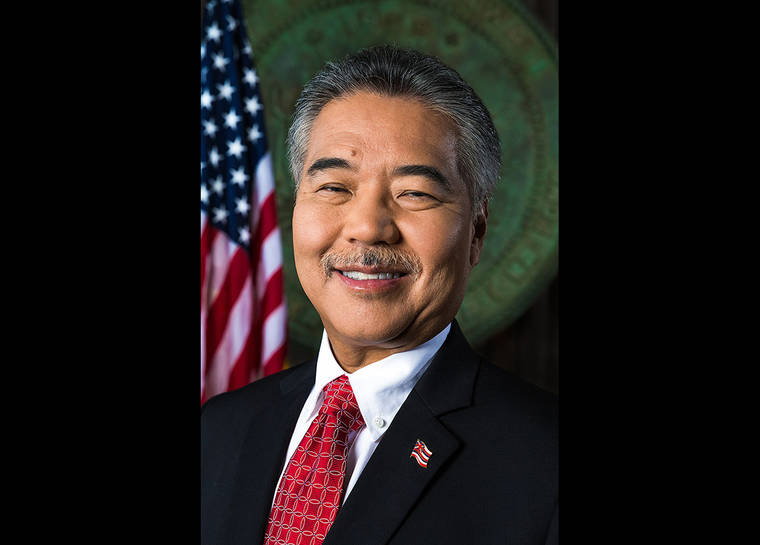Gov. David Ige signed a trio of crime-related bills into law Thursday, including one outlawing a type of unregistered firearm that was used during a Hilo shooting incident in June.
The three bills ratified are aimed at defending the most vulnerable members of society, including children and the elderly, Ige said.
House Bill 490 lowers the age at which a crime is considered a crime against a senior from 62 to 60 years of age.
“We all know the number of crimes went down during the middle of the coronavirus, when people were staying at home,” said Pearl City Rep. Gregg Takayama, an introducer of the bill. “Well, now people are returning to work, students will be returning to school. That leaves our kupuna at home, oftentimes by themselves or going out shopping for their families by themselves. So we’re hoping this bill sends a strong message to those who might target them for crimes of opportunity or violence that they will not be tolerated.”
Crimes against seniors can increase the severity of the crime by a degree: what would under other circumstances be considered assault in the second degree can be considered assault in the first degree if the victim is a senior and their age “reasonably should be known” by the perpetrator.
Meanwhile, House Bill 31 increases the maximum age of minors for which safe storage of firearms is required from 16 to 18 years of age.
“4.6 million children and adolescents in the U.S. live in homes with at least one unsecured firearm,” said Honolulu Sen. Karl Rhoads, chair of the Senate Judiciary Committee. “Not surprisingly, the presence of unsecured firearms in the home increases the risk of unintentional and intentional shootings. In 68% of deadly school shootings, the attacker obtained the firearm from the attacker’s home or from that of a relative.”
Rhoads added that teens between 16 and 18 have the highest rate of attempted suicide among all children, and more than half of all school shootings have been carried out by 16- or 17-year-olds.
The final bill was House Bill 1366, which closes a legal loophole that allowed people to skirt firearm restrictions by assembling a gun from parts, creating what is called a “ghost gun.” Because a ghost gun has no serial number, it is effectively untraceable.
A ghost gun was used in a shooting incident in Hilo in mid-June. During the incident, 34-year-old Hilo man Ryan Santos opened fire on police officers with a pair of firearms, one of which was a ghost AR-15. During the incident, Santos fired more than 25 shots at officers before an officer shot and killed Santos.
A bill passed last year made the manufacture, purchase or obtaining of ghost guns illegal. However, a loophole in that law allowed owners of ghost guns to avoid penalty by claiming that they purchased the gun’s component parts before the passage of the law.
HB 1366 closes that loophole, making possession of firearm parts to assemble a ghost gun illegal.
“We must make our communities safer now: in schools, on the streets, in stores, and in our homes,” said Tyler Dos Santos-Tam, chair of the Democratic Party of Hawaii, in a statement Thursday. “Hawaii is not immune to the type of gun violence we’ve seen on the mainland, and this bill is a welcome step in the right direction.”
Email Michael Brestovansky at mbrestovansky@hawaiitribune-herald.com.



